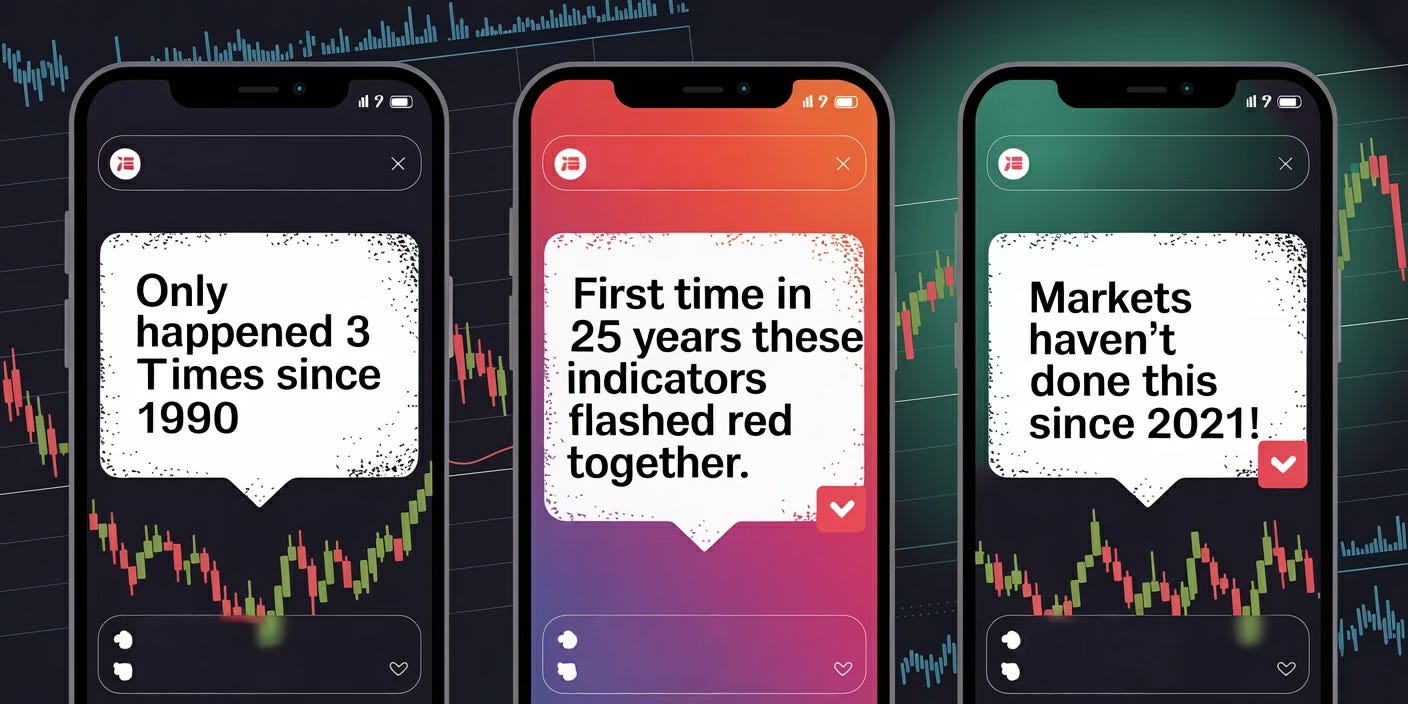The Market That Keeps Breaking Its Own Record
Every Day Can’t Be “The Biggest Since…” Or Can It?
It feels like every time I log into X, someone is shouting:
“This combo of market indicators hasn’t shown up since the early 2000s bubble!”
“This inversion has only happened 3 times since 1990…and you know what came next!”
“First time in 25 years these three indicators have flashed red together!”
At first, it sounds ridiculous. Surely we can’t be breaking records every week. But then you realize maybe something is different.
Is It Just Clickbait?
Yes, the headlines are clickbait. Most of these “record” claims are just clever ways of saying “something slightly unusual happened.”
But beneath the exaggeration is a legitimate shift where the market is cycling through extremes more often than it used to.
A move that once took months to unfold can now happen in a few trading sessions. Liquidity can evaporate and reappear within hours. Positioning flips faster than sentiment can catch up.
So while the headlines are overblown, the frequency of regime shifts (from greed to fear, momentum to mean reversion, tech euphoria to rate panic) has compressed dramatically.
A few forces explain why “record-breaking” behavior has become common:
Algorithmic Speed
Machines trade micro-inefficiencies faster than humans can blink. When positioning gets crowded, unwinds happen violently, creating what looks like “historic” swings on charts that used to be stable.ETF & Derivative Reflexivity
We now have volatility ETFs, 0DTE options, and leveraged products that didn’t exist before 1990. When traders pile into these products, their buying and selling can actually create extra volatility. This leads to moves that look like “record” events even if nothing major has changed underneath.Information Cycle
News, positioning data, sentiment, and macro updates are instantly digested. That compresses cycles that once took quarters into days. We live in an era where “macro narratives” rise and die in a week.
So yes, the endless “never seen before…” chatter can be exhausting. But it’s also an accurate description of the modern market where cycles have become shorter and reflexes have become faster.


